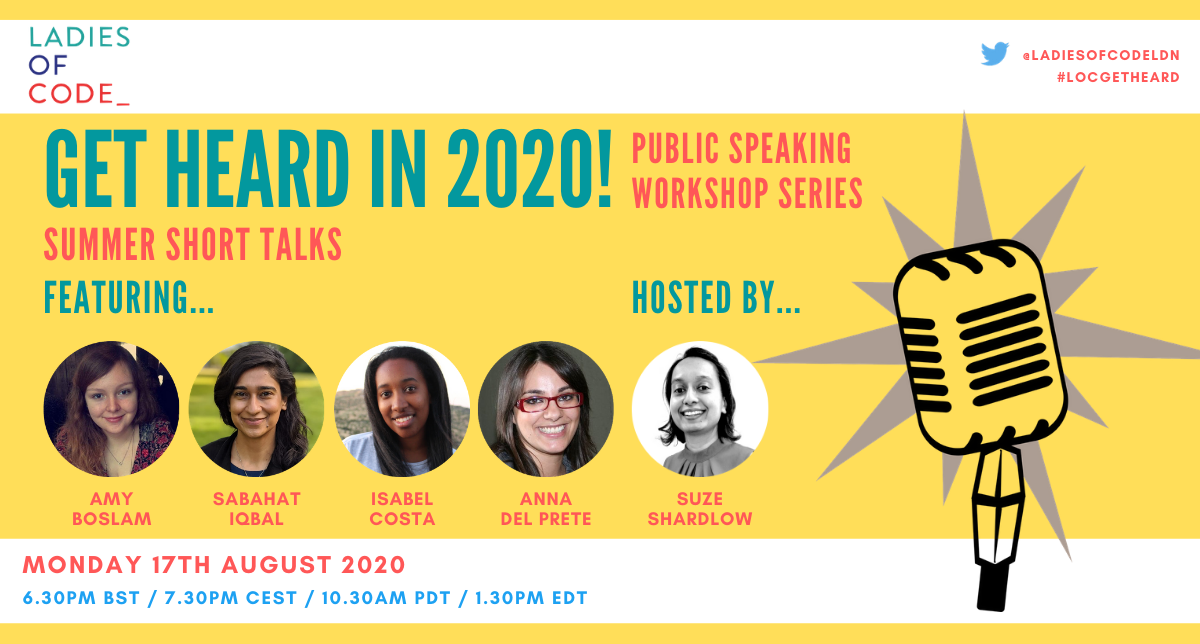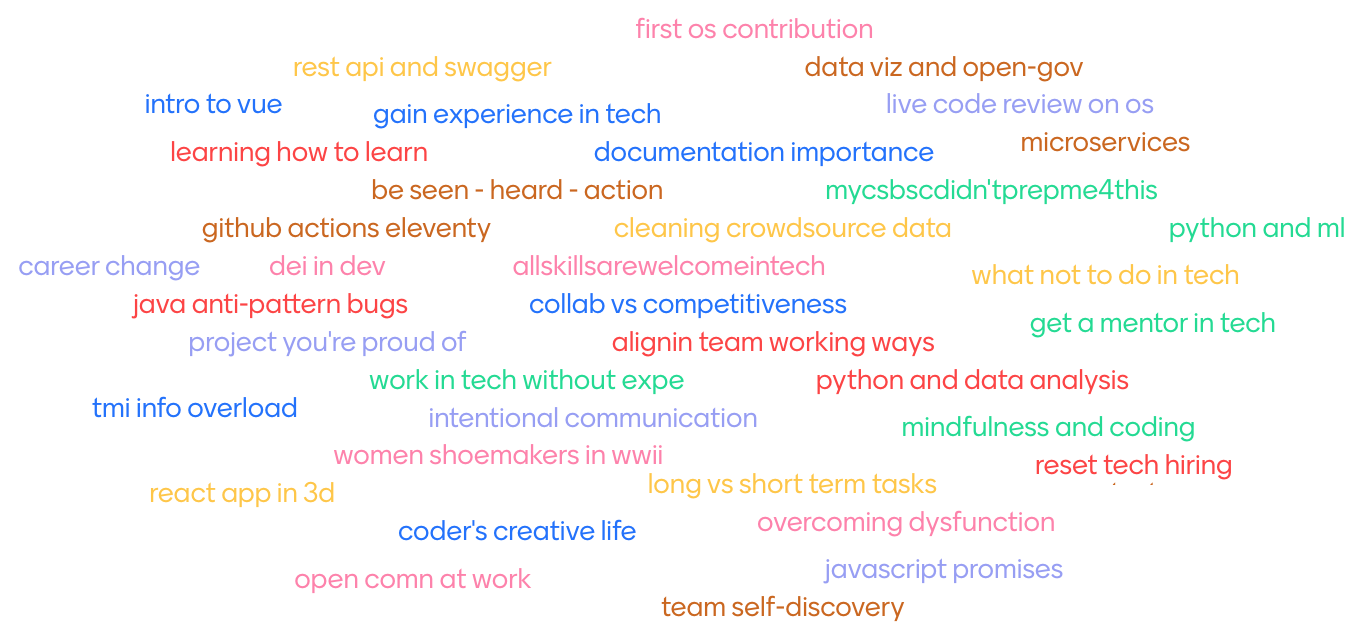How To Create A Tech Talk In 4 Weeks
Our first Ladies of Code public speaking workshop series helped four women write and perform a tech talk.
Monday 31 August, 2020 • Suze Shardlow • 3-minute read

We held our first-ever Ladies of Code London public speaking workshop series in July. It culminated in a showcase event where members performed their talk in front of a live, global audience.
Get Heard in 2020 had been on our to-do list for a while. Our aim was to help women and non-binary people to find their messages and bring them to their audiences. We had it all planned to deliver in March 2020. Sadly, COVID-19 took hold, our host closed their offices and we mothballed the idea, intending to revive it when we were able to meet again in person.
However, it soon became clear that COVID was here to stay for a while. The UK lockdown forced us to take our meetups online or not meet at all. At first, converting the workshop series to a digital offering looked too difficult. But then we found ourselves delivering at least one virtual event every week, so we put in more than 20 hours of extra planning to take Get Heard online.
Our inspiration for Get Heard came from Global Diversity CFP Day, who kindly permitted us to use their resources. We combined some of these with 1:1 and group mentoring to create a series of sessions to take members through the process of firstly figuring out what to talk about, then creating all the materials you need to apply to give that talk at a conference or meetup.
Workshop sessions and structure
Finding your topic
Everyone has something they could talk about. In the first workshop we provided a set of prompts to get people thinking about what they’ve been working on and learning.
We then paired everyone up so they could bounce ideas off each other.
Here are the topics that people came up with in this session:

Creating your title
People found this challenging, but again we worked through this together. The hive mind and objective viewpoints helped once more.
Writing your bio
We based this on the currently… before that… also… model. It might sound overly simple but it ensures you have a structure. We encouraged attendees to include information about their cool accomplishments, what lights them up and what’s important about them that isn’t on their CV. For this segment we showed the GDCFP Day video about bios.
Writing your abstract
Again, this was challenging. We broke it down by asking members to think about what the audience would take away from the talk. Would they be enlightened, inspired, persuaded, reminded, motivated…? What call(s) to action would the audience be given?
Practice sessions/office hours
We provided three separate sessions for people to drop in to get help or feedback on any of the above and/or practise giving their talk online with us.
The stats
It was interesting to see how many people committed to each stage of the process. Workshop One was open to anyone who wanted to attend. The subsequent sessions were only open to those who attended the first workshop.
We always expect a 50% dropout rate for meetups so we were not surprised that not everyone turned up. Members fed back that they were very happy with the quality of the workshop delivery and materials, but were not forthcoming about their reasons for dropping out. Therefore we can only assume it was because they could not prioritise this activity at that time.
Workshop One (topics, titles and bios): 34 signed up, 13 attended.
Workshop Two (abstracts, structure and slides): 7 signed up, 5 attended.
Workshops Three, Four and Five (feedback and practice sessions): the 4 people who went on to perform their talks attended these sessions.
The result
The four women who came all the way through the series started with nothing. They attended the first workshop without a topic for their talk.
Here’s the video of the showcase event we held four weeks after that first workshop session, where they delivered their finished talks.